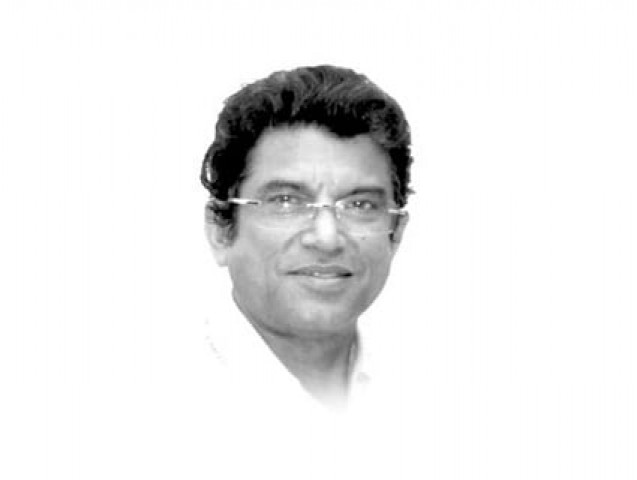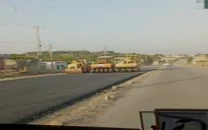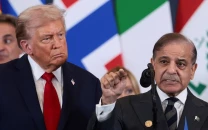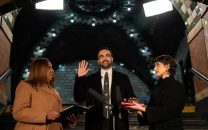Collective wisdom of a nuclear state
If negotiations fail, then the nation should support the use of force against the TTP, without any ifs and buts.

The writer is a retired brigadier who has served in senior intelligence postings in Khyber-Pakhtunkhwa and Fata
The people who would really be enjoying this collective wisdom must be Hakeemullah Mehsud and his partners in crime. They will be delighted that after killing thousands of Pakistanis, attacking military installations, beheading soldiers, kidnapping people for ransom, looting banks, terming Muhammad Ali Jinnah a ‘kafir’, they have still forced all elected leaders, including the prime minister, to talk to them, on their terms. The TTP knows that political parties want to run a peaceful election campaign and are apprehensive of violence, which their suicide bombers could unleash, and, therefore, chose this time to make their dialogue offer.
The governor has offered the Governor House to the tribal jirga to use as office. Some questions from the members of this nominated grand jirga: where has this jirga been for the past 11 years when Pakistanis were being killed ruthlessly? If the Maliks of this jirga were not the accomplices of the terrorists, did they protest when Fata was taken over by the Taliban? What are their credentials? Did they ever fight against the atrocities committed by the TTP and al Qaeda against the tribal peoples and the army? Did they condemn the killings of tribal Maliks who probably enjoyed a high stature and wanted to resist the presence of foreign militants in their areas? Did they ever protest against those tribal people who provided shelter to foreign militants?
The APC, in its lengthy session, probably did not discuss the modalities of talks and the various groups likely to be engaged, leaving it to the discretion of the jirga. However, in all probability, the jirga is likely to be confronted with some serious issues. Hakeemullah Mehsud may not be in control of other terrorist outfits, such as those operating in Swat, Bajaur, Mohmand, Orakzai, FRs and Khyber Agency? What about al Qaeda and thousands of other foreign militants residing in Fata? Will they be deported to their own countries to fight against their regimes for the implementation of shariah? What about the Lashkar-e-Jhangvi and other Punjabi Taliban, against whom the federal government has announced a crackdown? It will be a big achievement if the jirga can effect a ceasefire the day negotiations are initiated.
The TTP is waiting for a ‘positive response’ from the army, which they did not want to name as guarantor. If a majority of Pakistanis are convinced that negotiations are the only option to get rid of terrorism, talks should be held but within the ambit of the Constitution, and respecting the country’s law and sovereignty. However, if negotiations fail, then the nation should support the use of force against them, without any ifs and buts.
Published in The Express Tribune, March 5th, 2013.














COMMENTS
Comments are moderated and generally will be posted if they are on-topic and not abusive.
For more information, please see our Comments FAQ